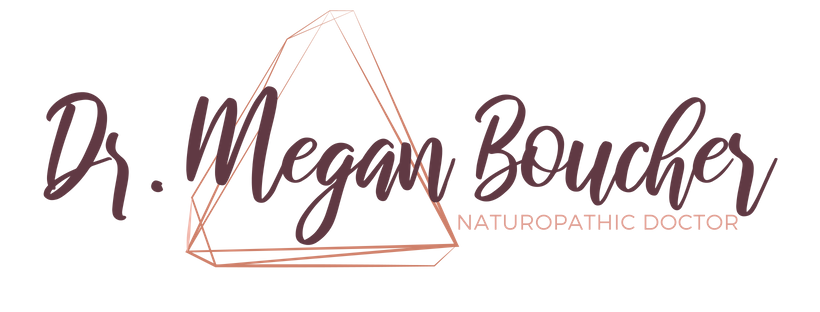Goitrogens in Thyroid Disease
There is so much information on the internet. A lot of it conflicting. If you’ve done any research into foods you should or should not eat when you have an underactive thyroid, you’ve likely come across BRASSICA or cruciferous vegetables as a “should not”. Was your mom wrong when she told you (yelled at you) to “EAT YOUR BROCCOLI!!”? Do goitrogens really impact your thyroid that much?
Probably not! Read on to learn why I still believe broccoli (and all Brassica vegetables) are some of the healthiest vegetables you can consume – under-functioning thyroid or not.
What is a Brassica/Cruciferous Vegetable?
Vegetables in the Brassica family include those such as:
- Broccoli
- Cauliflower
- Brussels Sprouts
- Cabbage
- Kale
- Turnip
- Rutabaga
- Mustard greens
- Collard greens
(There are other foods that do not fall into the “Brassica” family that also contain goitrogens, such as canola and soy, which we will talk about in another article!)
How Do They Relate to the Thyroid?
The basis of the recommendation to avoid the vegetables listed above is that Brassica vegetables contain a number of compounds, collectively know as “goitrogens”, which have been shown to reduce thyroid hormone production in some studies (1). On animals mostly. Or in really high doses.
So now we have all of these pigs, rats, and sheep running around with vegetable-induced hypothyroidism. But my patients aren’t pigs, rats OR sheep (shocking!)
Based on these findings, it is often recommended to avoid the consumption of Brassica vegetables to preserve thyroid function in humans. But is this truly a good recommendation? Should those with hypothyroidism really avoid Brassica vegetables? Does this avoidance cause any harm?
Here’s what I have found and what I recommend to my patients who suffer from hypothyroidism. (Of course, everybody is different and YOU know your body best. This information is not meant to replace individualized care).
So Should We Stop Eating Broccoli?
I have tried finding some good solid research to support or discount the recommendation to avoid Brassica vegetables; however, it is not so easy to find! There is very little literature available regarding the concentration of goitrogens that are present in the human body after eating Brassica vegetables, making it difficult to determine how much may actually be “harmful”.
One study did note that 194 umol of goitrin was shown to decrease iodine uptake by the thyroid (and we know how important iodine is to a healthy thyroid). (1) To put that in perspective, raw broccoli contains about 10 umol of goitrin in a 100g serving, meaning you would need to eat about 1940g of broccoli (or 7.5 heads). If you are eating 7.5 heads of broccoli each day, we need to talk.
Another compound, thiocyanate, has also been shown to decrease the uptake of iodine in to the thyroid (1). This compound is a breakdown product of some of the beneficial compounds in Brassica vegetables. It also happens to be found in cigarette smoke. SO if you smoke AND eat broccoli, I would highly recommend quitting smoking over quitting broccoli if you’re concerned about thyroid function.
Overall, there is not a lot of convincing evidence that makes me want to tell my patients to stop eating Brassica vegetables.
The Benefits
Other compounds in Brassica vegetables, namely sulforaphane and indole-3-carbinol, are potent antioxidants and anticarcinogenic compounds that may decrease the chances of developing thyroid cancer, amongst many others. Some animal studies have demonstrated benefits to the thyroid by decreasing oxidative damage and protecting against damage to the thyroid. (2)
Consuming foods rich in sulforaphane, such as broccoli sprouts, may also help with:
- Improving immune response to the flu virus (3)
- Protecting the stomach lining in H. pylori infections (4)
- Improving liver function (5)
- Reducing LDL cholesterol levels (6)
- Improving behaviour in autistic patients (7)
Etc., etc., etc.
It’s All About Balance
The substantial benefits of these compounds (that have been heavily researched) far outweigh the potential risks (which aren’t well proven).
What I have concluded is the potential risk of Brassica vegetables occurs in two situations:
- You are in an iodine-deficient state already, and goitrogens in Brassica vegetables decrease the ability for your thyroid to use the already low amount of iodine in your body
- You eat a large amount of raw Brassica vegetables on a regular basis. (This is particularly true for Brussels Sprouts, which contain higher amounts of goitrogens. The recommendation here is to not eat more than “1kg/day for several months”. I don’t know if you’ve ever seen 1kg of Brussels Sprouts, but even as my favourite vegetable I don’t think I could do it!)
When I review dietary habits with my hypothyroid patients, I never recommend they stop eating Brassica vegetables all together.
I will have them limit the amount they are eating raw, sticking to cooked vegetables mainly. This ensures they are minimizing any potential negative effects while still obtaining the awesome nutrients that are packed into Brassica vegetables! If an iodine deficiency is suspected (based on their thyroid panel blood work or a urinary iodine test), I still won’t recommend they eliminate Brassica vegetables! In this case, we work on improving iodine status and once again focus on limiting raw vegetable intake.
The answer is NOT to avoid Brassica vegetables unless we determine they are truly contributing to symptoms, as may be seen in a food sensitivity.
Overall, dietary strategies need to be made on an individual basis for each patient. I am happy to provide meal plans to my patients to help navigate the healthy food world and find what works best for them! Interested in learning more? Check out my Services page or Contact Me to book an appointment now!
References
- https://www.ncbi.nlm.nih.gov/pubmed/26946249
- https://www.ncbi.nlm.nih.gov/pubmed/29080462
- https://www.ncbi.nlm.nih.gov/pubmed/26820305
- https://www.ncbi.nlm.nih.gov/pubmed/19349290
- https://www.ncbi.nlm.nih.gov/pubmed/26604653
- https://www.ncbi.nlm.nih.gov/pubmed/25851421
- https://www.ncbi.nlm.nih.gov/pubmed/25313065

